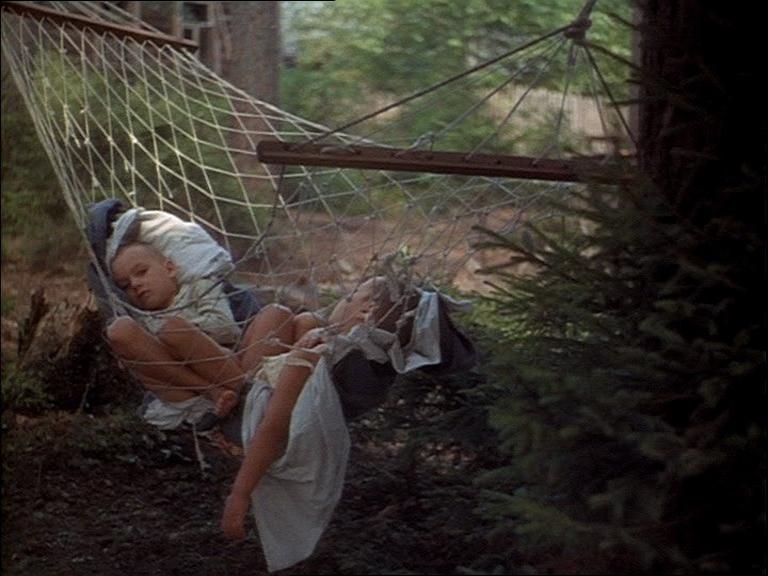
A stuttering student is hypnotized to cure his impediment. A strong wind blows across a field. A ceiling collapses in a rainshower. A bird lands on a boy’s head. A sleeping woman levitates over her bed. A man clutches some feathers in his hand, and a bird flies out.
It is difficult to imagine all of these images coexisting in a single story, and while they all occur in Andrei Tarkovsky’s film The Mirror, it would be a stretch to say they are all part of a single story. In fact, it’s hard to say if The Mirror is telling a story at all.
Along with these images, Tarkovsky incorporates wartime newsreel footage, elliptical references to Fyodor Dostoyevsky, and voiceover audio of his father reciting his poems. The sections of the movie that most resemble a traditional narrative center on a boy named Ignat who is asked to choose if he wants to live with his mother or his father. Even these scenes, however, are not necessarily shown in a chronologically recognizable order and often feature dreamlike qualities.
Instead of navigating his film by means of traditional markers such as story and character, Tarkovsky instead invites his audience on an oneiric journey in which the emotional import of images is more important than their literal meanings.
If all of that makes The Mirror sound like a difficult viewing experience, it is. The tools with which we usually interpret and understand a movie are more of a hindrance than a help when watching The Mirror. Even with its considerable learning curve, though, it is often called Tarkovsky’s masterpiece.
The question that naturally arises, of course, is “Why?” One reason is that the sheer visual power of the images in The Mirror exerts a strong spiritual impression, even if their meaning is not readily apparent. Additionally, when the viewer accepts Tarkovsky’s approach and interacts with the film on his terms, it can evolve into a profound meditation on memory, love, sacrifice, and rebirth.
—Tyler Petty, from his blog Faces Unveiled
- Directed by: Andrei Tarkovsky
- Produced by: Erik Waisberg
- Written by: Aleksandr Misharin Andrei Tarkovsky
- Music by: Eduard Artemev
- Cinematography by: Georgi Rerberg
- Editing by: Lyudmila Feyginova
- Release Date: 1975
- Running Time: 107
- Language: Russian, Spanish
Arts & Faith Lists:
2004 Top 100 — Unranked List
2005 Top 100 — #44
2006 Top 100 — #62
2010 Top 100 — #16
2011 Top 100 — #11
2015 Top 25 Films on Memory — #7